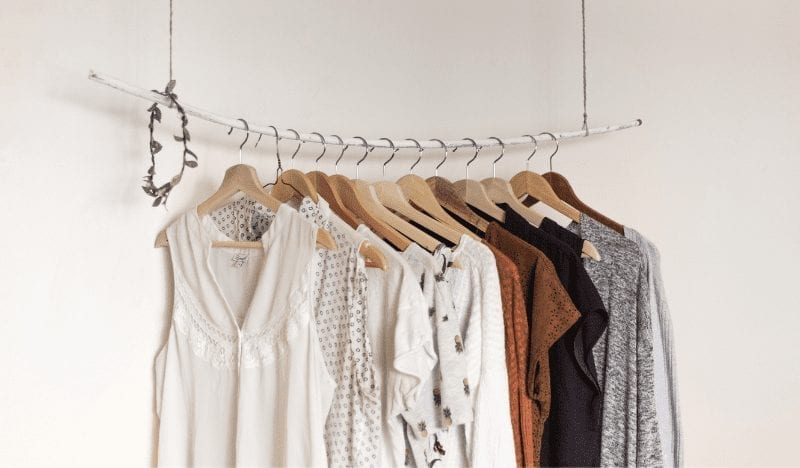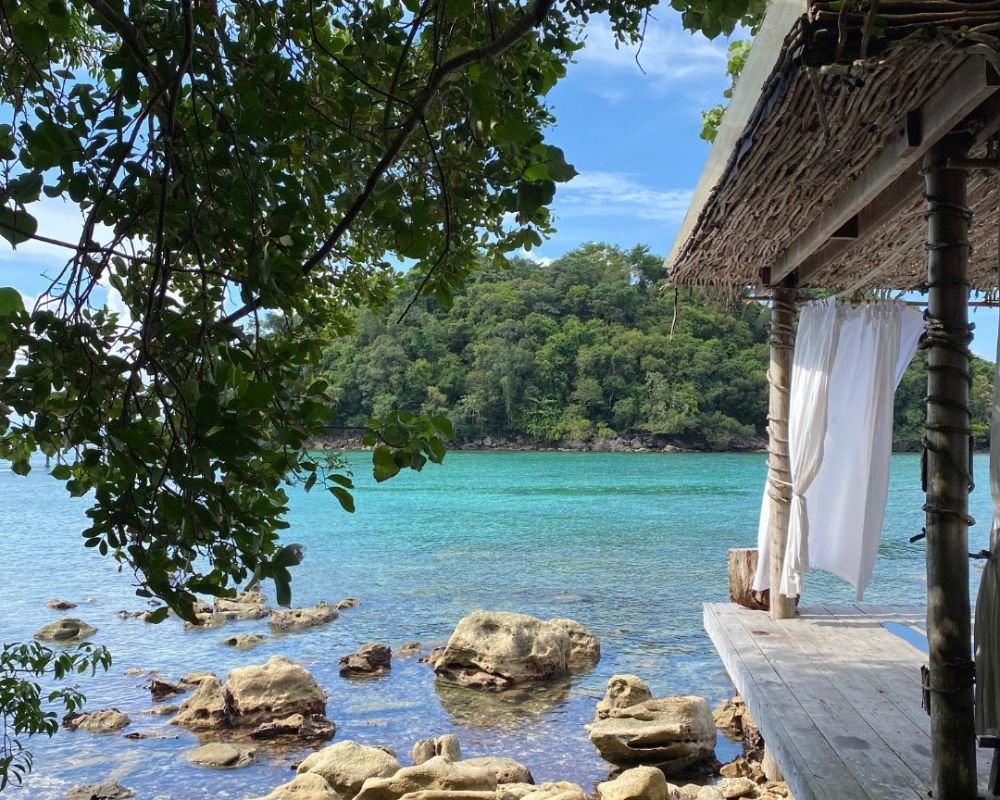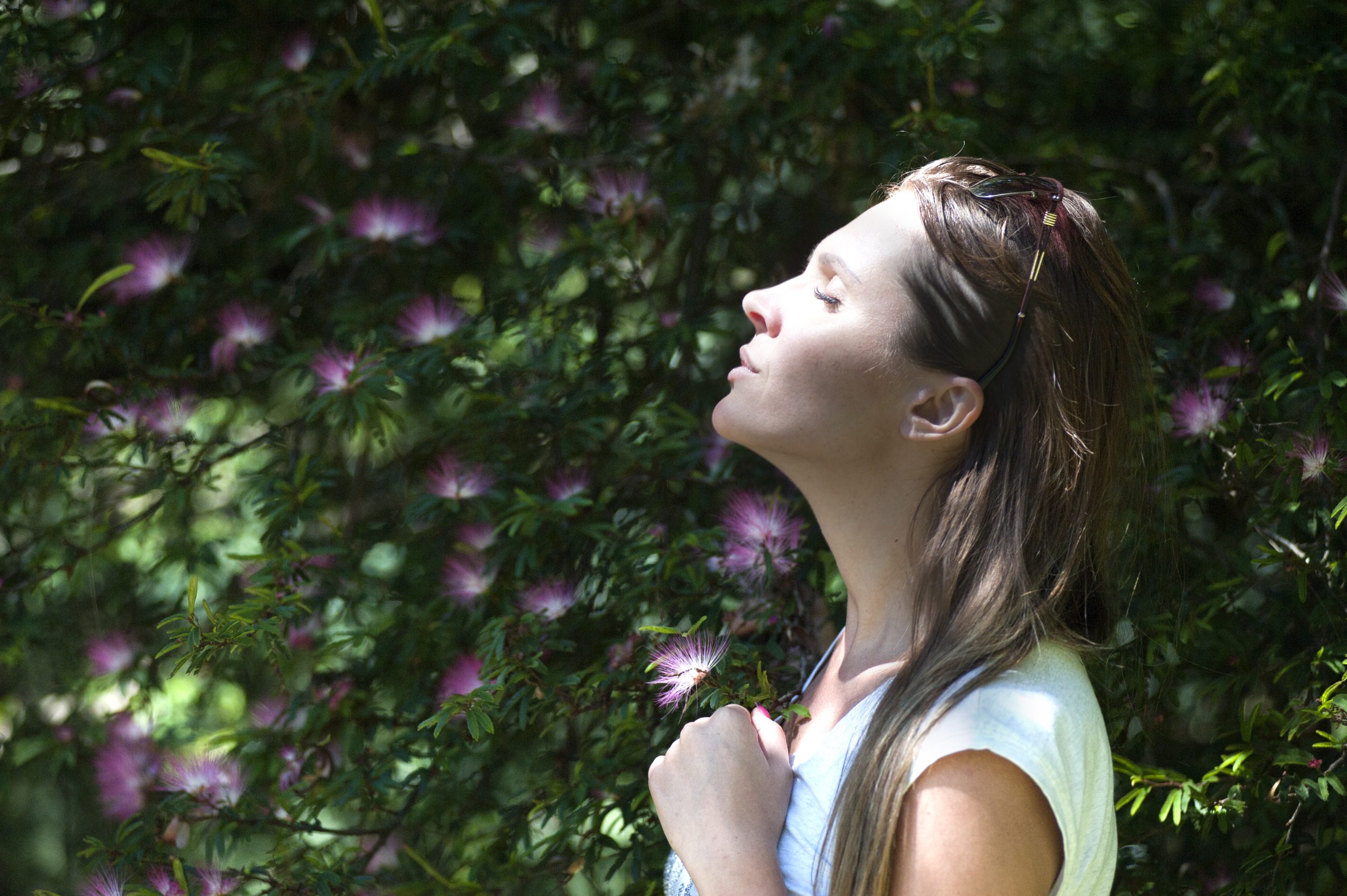When it comes to Australian lifestyle brands, there are few as iconic – or as enduring – as Country Road. With consumers growing in eco-savviness year-on-year, the brand has kept apace by continually improving its sustainability indicators.
Last month, Country Road announced its first collection made in part from fabrics left over from other production runs. Called Towards Circularity, the collection of sweat tops, pants and t-shirts is made with 30 percent of the brand’s own recycled cotton fibres. In other words, the brand is using what would have been waste to make new garments.

Although the brand isn’t the first to use its own recycled fabric fibres (jeans brand Nudie very quickly comes to mind), it is one of the very few trying to close their own production and manufacturing loops.
Why? Because it’s bloody hard to do with existing technology, and current manufacturing and production processes.
In this interview, Country Road Brand Impact and Community Manager Fabia Pryor comments on the brand’s sometimes confusing reputation around sustainability, the challenges fashion brands face on their journey to circularity, and what we can expect next from Country Road.

Ilona: What were some of the challenges around technology that the brand had to overcome to release a recycled yarn line, and why do you think more brands aren’t doing it?
Fabia: Country Road’s Toward Circularity collection is made using 30% recycled cotton sourced from our off-cuts and faulty garments. They are shredded, re-spun and blended with virgin cotton to give them a new life. Unlike regular off the shelf recycled yarns, this range uses leftover Country Road fabrics to create new Country Road garments.
This required completely new processes and capabilities to be developed, working closely with our supplier, Kashion. It took more than twelve months to bring the project to life, overcoming numerous challenges along the way.
One of the first challenges was to determine the optimal fibre blend. For this collection, Kashion partnered with a mill that is industry leading in producing recycled fibre yarns.
Getting the right fibre blend to guarantee quality required numerous trials in spinning and knitting. It’s how we landed on the 30/70 blend, mixing the recycled cotton with new cotton fibres to achieve the strength, durability and quality we are known for.
Another technical constraint we dealt with was colour. In this project part of the process involved recycling and blending already dyed fabrics. We had multiple colours coming together so the challenge was to create a clean colour at the end. Ultimately we found that the yarn made from already dyed materials could be overdyed into navy, black and charcoal.
Finally, new processes had to be implemented at Kashion to sort off-cuts by colour and fabric quality. Strict collecting requirements are key to ensuring the final recycled yarn is high quality. So the big challenge was, how do we implement these new systems? Ultimately, the sorting process has created new jobs, with part-time workers now collecting the off-cuts and quality checking them before sending them on to the spinner. This epitomises the benefits of circularity – eliminating waste, reducing reliance on natural resources, driving innovation and creating jobs
Ilona: What has the brand learned in the process?
Fabia: Circularity at its heart is about systems change, which requires innovation, investment and
collaboration and we really saw that in this project.
Our close, long term relationship with Kashion underpins the Toward Circularity collection. They have been a part of the Country Road family for over 10 years and are our number one supplier. They help to create some of Country Road’s most-loved styles, including our famous Verified Australian Cotton Heritage Sweat. To bring this new project to life, we worked closely together for more than 12 months, overcoming technical and logistical challenges to create an innovative new process that uses waste fabric to create new garments. It’s a great example of driving change through collaboration.
Another key learning from this project is the value of ‘waste’ and the need to recognise it as a significant resource. This project alone has the potential to divert 100,000 kilograms of textile waste from landfill per year— almost the equivalent weight of a full Boeing 757.
Ilona: How many drops does Country Road do each year ?
Fabia: Throughout winter, we’ll expand our Towards Circularity collection by introducing new styles with our recycled fabric and we will top up this range as needed. The remainder of our collections are designed with longevity front of mind. To shape a circular fashion system requires a move away from fast fashion to considered, timeless design. At Country Road we create high quality garments designed to be worn and loved for a long time.

But we know that the needs of individual wardrobes change over time so we also have a partnership with Red Cross, and have done so through Fashion Trade since 2011, allowing customers to donate pre-loved Country Road items through our stores or Red Cross shops.
Through this initiative we divert waste from landfill while raising money for Red Cross programs. Over 250,000 garments have been donated through brand and customer donations over the past ten years, equalling approximately 37500kg of textiles diverted from landfill and over $750,000 raised for Red Cross programs.
Ilona: What are some of the challenges when it comes to retaining the profits of a big name brand, and being sustainable?
Fabia: At Country Road we’ve been on a good business journey for some time and we’re now at a stage where sustainability is factored into decision-making across the business. We recently received an A rating in the 2021 Baptist World Aid Ethical Fashion Guide, an independent report that ranks brands based on their approach to ethical sourcing, environmental sustainability and more.
Last year we expanded our range of Australian Made products, including the 90s Reissue Australian Made Heritage Sweat and the Australian Made T-Shirt.
This was a pilot for us to test appetite amongst our customers for local manufacturing, and in particular, their willingness to pay the increased price that comes with it. We’re pleased to say that our customer has responded well.
Our insights show continued demand for fashion brands to support local industry, with 64% of Australian consumers indicating their support for onshore manufacture even if it’s more expensive. 80% of our members consider Country Road using Australian wool and cotton as very important, and 76% want to know the origins of materials used.

Expanding local production was an obvious next step for Country Road, following our long term support of Australian farmers. Through our Oritian Verified Australian cotton and merino ranges we support local farmers and can trace the origin of our fibres to local farms implementing better land management practices and with higher animal welfare standards.
Equally, our partnership with Landcare Australia supports local farmers with regeneration to increase biodiversity on their cotton farms. In its first year our partnership raised $200,000, which helped restore 34 hectares of land, improve 6.5 kilometres of river frontage and enhance habitats for threatened species like the koala.
Ilona: The brand doesn’t alway get a good rap for its sustainability performance – what comment can you make to consumers who are confused?
Fabia: We recently received an A rating in the 2021 Baptist World Aid Ethical Fashion Guide, an independent report that ranks brands based on their approach to ethical sourcing, environmental sustainability and more. The Baptist World Aid Ethical Fashion Guide has an in-depth survey that they ask brands to complete, showing proof of their work across the social and environmental space, whereas other rating systems rely solely on publicly available information.
We haven’t always shone a light on the depth of work being done behind the scenes at Country Road to better our social and environmental impact. However, in recent years we have increasingly shared, and celebrated publicly, our work in this space. In 2021 we also received a first place rating in the Humane Society’s Better Wool Guide. Our responsible wool strategy seeks to protect the land through sustainable farming practices, as well as improving animal welfare standards across the supply chain.
Here at Country Road, we are proud to partner with leading manufacturers worldwide to produce our goods. All Country Road suppliers must abide by our Code of Labour Practice, which mandates that employment must be safe and freely chosen. We regularly audit our suppliers via independent third parties to ensure this Code is upheld, and are committed to partnering with suppliers and industry stakeholders to further protect and improve conditions and promote worker empowerment.
In line with our commitment to greater transparency and to encourage customers to make responsible purchasing decisions, we have published our list of factory locations. You can view the list and read more about our Code of Labour Practice, Environmental Code of Practice and Animal Welfare Policy .
We strive to ensure the resources we use come from partners that prioritise sustainable practices so that the welfare of people, animals and the environment is a top priority. We have responsible sourcing strategies in place for our key raw materials. You can learn more about these as well as our partnerships with Landcare Australia, The Darwin Aboriginal Art Fair Foundation, Red Cross and Redkite .
Ilona: What other sustainability initiatives are in the works?
We have responsible sourcing strategies in place for our key raw materials. This means, in-store, as well as garments made using Oritain Verified Australian Cotton or Wool, we also have our organic cotton and linen ranges, homeware made from responsibly sourced timber and our men’s denim, made with a wash process that, on average, uses 50% less water than standard. These are just some examples of the many sustainability stories in-store, with more set for roll-out this year.

In August 2019, we opened our first 5 Star Green Star Design Review rated store, certified by the Green Building Council of Australia. It includes fixtures made from recycled yoghurt containers and carpet and rugs made from fishing nets. Fitting room hooks are made using revitalised ocean plastic and the wall cladding is made from recycled paper. It was the very first fashion retail 5 Star Green Star store in Australia, marking an important milestone for us and the broader fashion retail industry. Since then we have opened ten Green Star rated stores with others in the works for the year ahead. As an iconic Australian retailer we feel it’s our role to push boundaries and drive positive change, from our products to our partnerships and stores.
This year we will celebrate the third year of our partnership with the Darwin Aboriginal Art Fair Foundation, supporting and learning from the art, design and talent of First Nations Peoples. Through our sponsorship of the National Indigenous Fashion Awards (NIFA) we provide an annual mentorship to the National Fashion Design Award winner. In 2020, the award was won by Julie Shaw of Maara Collective, who has joined teams across the business in Marketing, Design, Sustainability & Community Impact. For 2021, the award was won by Denni Francisco of Ngali, who will begin her tailored mentorship with Country Road in the coming months.
We support ethical trade and transparency across all aspects of our production and supply
chains so that the welfare of people, animals and the environment is a top priority. On every
level we look to care for our planet so our customers can feel proud of every Country Road
product they take home.
















